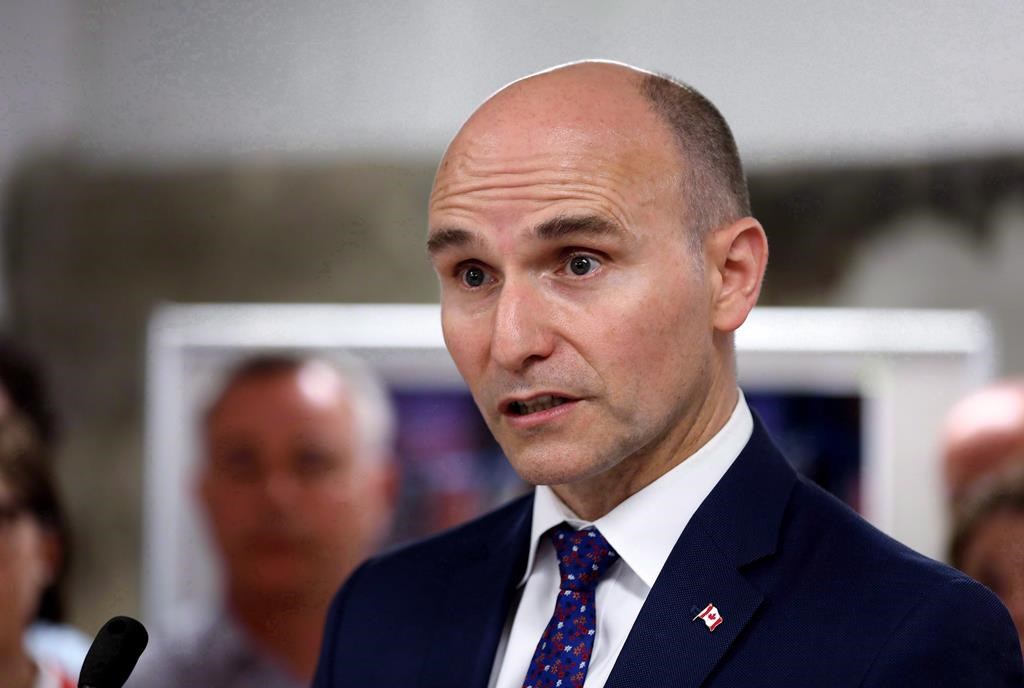The Liberals made their first $50-million move Wednesday in a plan to finance experimental ways to deliver social services, intending to help small social-service organizations understand how to apply for a much bigger pot of money starting next year.

It’s uncharted water for both the government and the organizations it hopes will share hundreds of millions of dollars more, and the early part of the voyage has been rough.
READ MORE: More than 60% of web users support governments censoring fake news: Ipsos poll
Federal officials have been working on a strategy for social finance, as it’s known, for years, hoping to bring private funding, incentives and discipline into social services governments provide themselves or directly fund.
The idea is that private backers partner with a group or organization to fund new ways of helping people improve their job skills or health, for instance, with public dollars flowing in if the partnership produces measurable results — shifting the financial risk off the public purse.
The Liberals have promised $755 million over 10 years for a social-finance fund.
WATCH: NDP say Liberals’ ban on single-use plastics ‘hard to believe’

There is also the $50 million over two years to teach those organizations about a process that they have rarely, if ever, had any experience with. The government said Wednesday it is turning to 17 existing social-finance organizations, which will move the $50 million to smaller groups to make sure the larger fund, when it launches in 2020, doesn’t sit idle because no one knows how to apply.
“These organizations are looking for ways to make a difference not only from an economic, but also from a social and environmental, perspective. I am very hopeful and very confident that they will,” Social Development Minister Jean-Yves Duclos said in an interview.
READ MORE: Ford government cutting $1B from social services over 3 years
Andrew Chunilall, CEO of the Community Foundations of Canada, said there is no way to be sure what benchmarks are needed to measure the spending’s success, pointing to the relatively new financing territory the country is traversing.
“It is about not knowing what the outcome is going to be and stepping into the space of uncertainty and just be willing to determine success on a set of variables you hadn’t contemplated in the first hand,” said Chunilall, whose organization will have a hand in how almost half the $50 million is spent.
“That really is a new way of thinking, it’s the way that this next generation of entrepreneurs is thinking.”
Duclos acknowledged that the unknowns have not made it easy for officials try to chart a policy path to make federal rules friendlier to the sector.
The government announced a new advisory council Wednesday to help guide federal efforts.
WATCH: Canada’s jobless rate drops to its lowest level in more than 40 years. Business expert Rob Levy breaks down the numbers.

“It’s never been done before so the federal government has no experience in doing these things,” Duclos said. “It’s natural that people are talking about different mechanisms. That’s not only natural, but it’s a great thing because it’s going to make sure that these historic investments are going to be very impactful across Canada.”
Problems appeared to arise late last year when officials from Employment and Social Development Canada (Duclos’ department) and the Finance Department disagreed sharply about how the government should use the $755 million, according to multiple sources with knowledge of the behind-the-scenes talk who have spoken to The Canadian Press under condition of anonymity to detail private events.
The last version of the plan suggested a fund manager and secretariat be housed inside ESDC with an advisory council of external experts making funding recommendations. Duclos said the government is considering different options, with conversations taking place with outside organizations.
Sources also said the Canada Revenue Agency has balked at rewriting the tax code to allow non-profits to run socially motivated companies that would turn profits, which could then be reinvested, without fear of losing their tax-exempt status.
Documents previously obtained by The Canadian Press under the access-to-information law suggested such a change would put small, for-profit businesses at a competitive disadvantage.



Comments